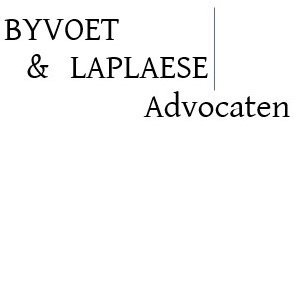Best Conveyancing Lawyers in Bruges
Share your needs with us, get contacted by law firms.
Free. Takes 2 min.
Free Guide to Hiring a Real Estate Lawyer
List of the best lawyers in Bruges, Belgium
About Conveyancing Law in Bruges, Belgium
Conveyancing in Bruges, Belgium, refers to the legal process of transferring ownership of real estate property from one party to another. Whether you are buying, selling, or transferring property, conveyancing ensures that all legal procedures are followed, all documents are correctly executed, and the rights of both buyers and sellers are protected. This process typically involves a notary public, as Belgian law requires a civil law notary to formalize property transfers. The notary drafts deeds, verifies property titles, ensures taxes are paid, and registers ownership with the appropriate public authorities.
Why You May Need a Lawyer
Although notaries carry out much of the formal work, you may still need a lawyer for several reasons during conveyancing in Bruges:
- Complex Transactions: If the sale involves complicated arrangements, shared ownership, inheritance, or unusual conditions, a lawyer can provide guidance and protect your interests.
- Disputes: Disagreements about property boundaries, rights of way, or contractual terms may require legal intervention.
- Non-Residents: If you are a foreigner purchasing in Bruges, a lawyer can help you navigate language barriers, legal requirements, and cross-border issues.
- Due Diligence: Legal counsel can assist with reviews of property history, ensuring there are no outstanding debts, liens, or legal impediments attached to the property.
- Negotiations: A lawyer can advise on contractual negotiations and help prevent future legal problems.
Local Laws Overview
Conveyancing in Bruges is governed by national Belgian law and supplemented by local regulations. Some key aspects include:
- Notarial Involvement: Belgian law requires all property sales to be handled by a notary, who is an official legal adviser and public officer.
- Pre-Contract (Compromis de vente): The initial sales agreement is binding once signed, even before the notarial deed. Special conditions should be included here if needed.
- Registration and Taxes: Buyers are responsible for registration fees and transfer taxes, typically paid when executing the notarial deed.
- Due Diligence: The notary researches title, checks encumbrances, and ensures proper payment of taxes and debts.
- Public Records: Ownership changes are registered with the local mortgage registry and land registry.
- Timelines: Real estate transfers follow strict deadlines, often taking two to four months from initial agreement to notarial completion.
- Energy and Compliance Certificates: Sellers are required to provide energy performance, electrical, and urban planning certificates prior to sale.
Frequently Asked Questions
What is the role of the notary in a property transaction in Bruges?
The notary’s job is to ensure the legality of the transaction, prepare and sign the deed of sale, conduct necessary checks on the property, and handle the registration and transfer of ownership. Both the buyer and the seller can use the same notary, or each may appoint their own.
Do I need a lawyer if I have a notary?
While the notary handles official aspects, a lawyer can provide independent advice, help with negotiations, resolve disputes, and give extra protection, especially in complex situations.
What are the main costs involved in buying property in Bruges?
Buyers typically pay registration duties or transfer taxes, notary fees, and possibly legal fees. The percentage varies depending on the property and your residency status.
Can foreigners purchase property in Bruges?
Yes, foreigners have the same property rights as locals. A lawyer is helpful for sorting out language barriers and understanding Belgian procedures.
Is the pre-contract (Compromis de vente) legally binding?
Yes, in Belgium the pre-contract is binding, except for specific suspensive conditions. If either side pulls out after signing, compensation may be required.
How long does it take to transfer property in Bruges?
The process usually takes about two to four months from signing the pre-contract to executing the notarial deed.
What documents do I need as a buyer?
You will need identification, proof of funds, and will receive property-related documentation (title, certificates, pre-contract) from the seller or notary.
Who pays the notary fees in Bruges?
Customarily, the buyer pays the notary fees and registration taxes, though terms can be altered through mutual agreement.
What happens on completion day?
The final notarial deed is signed, remaining funds are transferred, registration taxes are paid, and the buyer officially becomes the owner. The keys are usually handed over at this stage.
What if there are problems with the property after purchase?
Legal remedies may be available for hidden defects, especially if the defect was known to the seller but not disclosed. Consult a lawyer promptly if issues arise after completion.
Additional Resources
If you need more information or help with conveyancing in Bruges, these resources may be useful:
- Royal Federation of Belgian Notaries (Fednot) - Offers guidance on the notarial process and a database to find local notaries.
- City of Bruges - Housing Department - Provides information about municipal regulations and property certificates.
- Belgian Bar Associations - Useful for finding a qualified property lawyer in Bruges.
- Federal Public Service Finance - Details on registration duties, property taxation, and related financial aspects.
Next Steps
If you are planning to buy or sell property in Bruges, Belgium, consider the following steps:
- Determine your needs and gather property details.
- Contact a local notary for initial guidance on legal formalities.
- If your situation is complex or you feel unsure, consult with a lawyer specializing in Belgian property law.
- Prepare all necessary documentation and certificates required for the transaction.
- Read all agreements carefully and do not sign anything unless you understand all implications. Your lawyer can review documents if needed.
- Follow up on all deadlines to avoid delays or penalties.
- Keep records of all communications and documentation throughout the process.
Seeking early professional advice can prevent common mistakes and ensure a smooth transaction. If you are in doubt, prioritizing expert legal support can save time, money, and stress in the long run.
Lawzana helps you find the best lawyers and law firms in Bruges through a curated and pre-screened list of qualified legal professionals. Our platform offers rankings and detailed profiles of attorneys and law firms, allowing you to compare based on practice areas, including Conveyancing, experience, and client feedback.
Each profile includes a description of the firm's areas of practice, client reviews, team members and partners, year of establishment, spoken languages, office locations, contact information, social media presence, and any published articles or resources. Most firms on our platform speak English and are experienced in both local and international legal matters.
Get a quote from top-rated law firms in Bruges, Belgium — quickly, securely, and without unnecessary hassle.
Disclaimer:
The information provided on this page is for general informational purposes only and does not constitute legal advice. While we strive to ensure the accuracy and relevance of the content, legal information may change over time, and interpretations of the law can vary. You should always consult with a qualified legal professional for advice specific to your situation.
We disclaim all liability for actions taken or not taken based on the content of this page. If you believe any information is incorrect or outdated, please contact us, and we will review and update it where appropriate.










